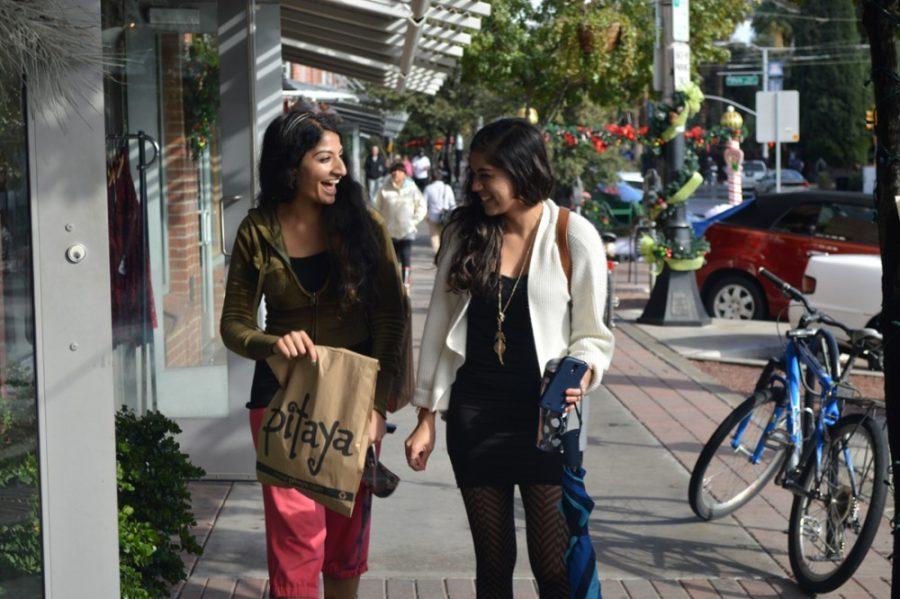Consumers who shop locally stimulate the Tucson economy by investing money back into a city that is home to numerous local businesses, restaurants and organizations, which is beneficial to all Tucson residents.
The existence and success of local retailers generates the opportunity for the existence and success for local producers, thus creating a spending cycle within the local economy.
“With the chain stores, payments for the resources to the suppliers of the merchandise usually leave Tucson’s economy,” writes Stephen Reff, a lecturer in economics at the UA, in an email interview. “The same holds true for a local business if the merchandise is produced outside Tucson’s economy. Both groups of businesses, though, create jobs which then stimulate consumption.”
Main Gate Square and University Boulevard host a variety of different local and non-local retailers, such as Collette Clothing, which is located on University Boulevard and is one of the many local Tucson businesses that attracts consumers from campus and local high schools.
According to Reff, the balance of local and out-of-town shoppers is a vital part of Tucson’s economic growth.
“For Tucson to have true economic growth, rather than just a transfer of income from one group of individuals to another group of individuals inside of its economy … Tucson needs to attract businesses that create products or services that are sold outside of Tucson’s economy … so as to bring in more money to Tucson,” Reff writes.
Consumption, in general, increases in the U.S. during winter months when consumers purchase gifts for the holiday season. Sherry Lotz, associate professor in retail and consumer sciences, said that if a small, locally owned business is in a mall setting, it can share in the profits of the shoppers who are already in the holiday “shopping mood.”
Local First Arizona, a statewide nonprofit focused on supporting small businesses, launched the “Buy Local Month” campaign in late November. The program, which ends Dec. 24, focuses on providing shoppers with the resources necessary to know where and how to shop locally during the holiday season.
“Shopping locally is one of the best things you can do for an economy,” said Jesse Lee, a pre-business sophomore.
According to a 2004 report from the Andersonville Study of Retail Economics, for every $100 spent within the community, $68 stays in that local community. Conversely, for every $100 spent at big chain companies, $43 stays within the community. By spending locally, the amount of money kept within the community increases by 58 percent.
“It keeps the money in the hands of the community and out of the hands of large, outside businesses,” Lee said. “It allows employees from retailers that experience an increase number of seasonal shoppers to gain access to more hours, creating an opportunity to increase their income. In this situation, this increase in income can then be used for consumption at another local store. This creates a beneficial cycle that most economists would consider ideal.”
_______________
Follow Brandi Walker on Twitter.









